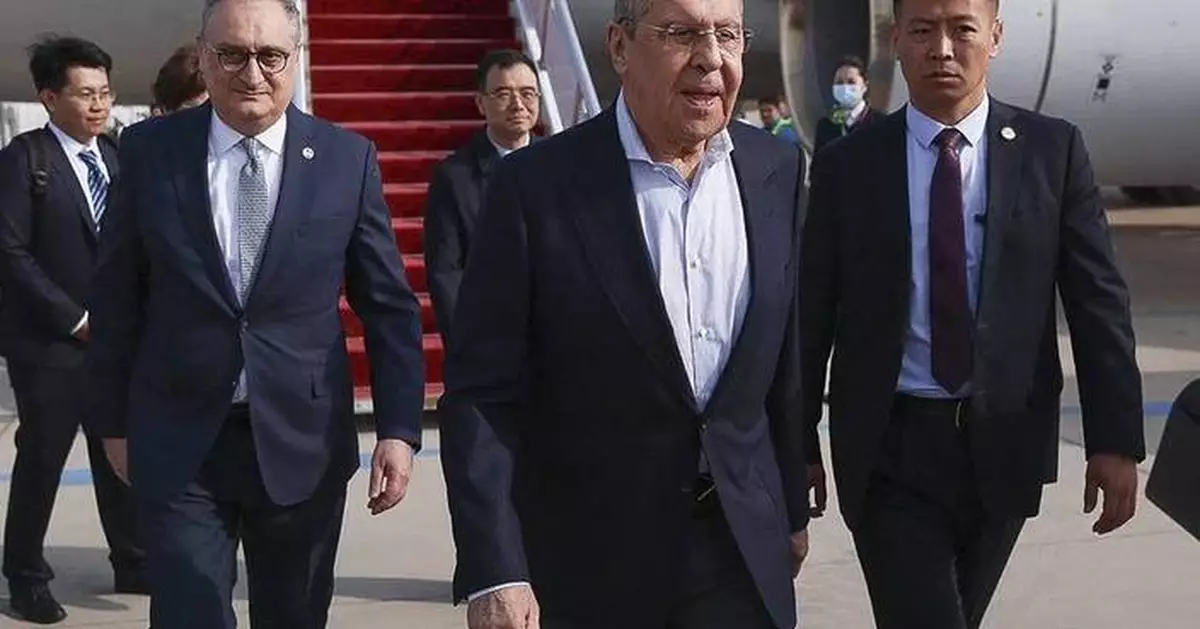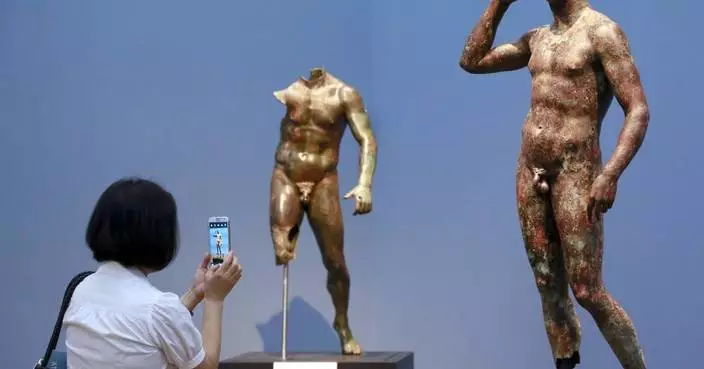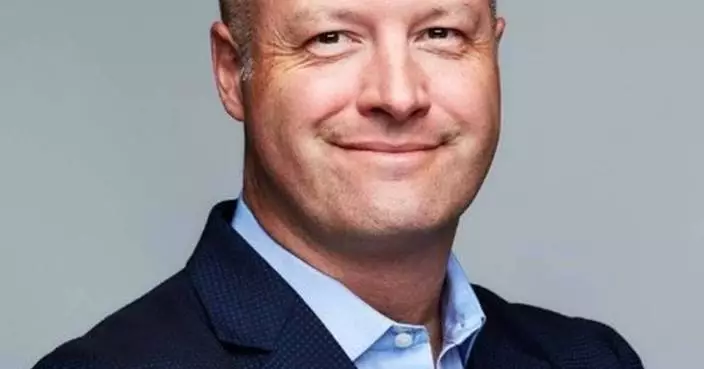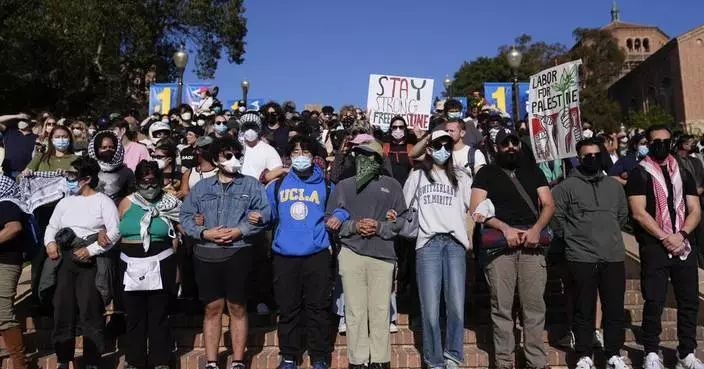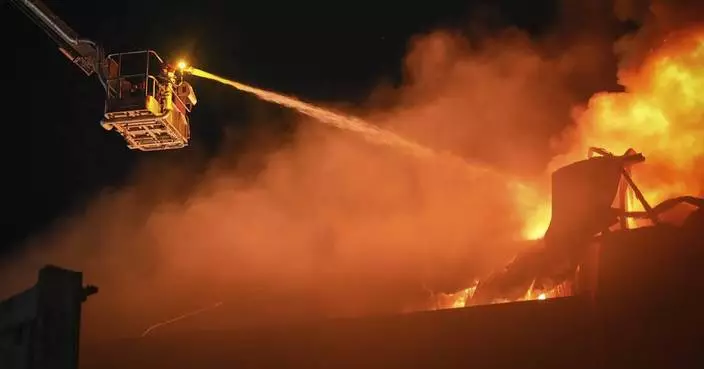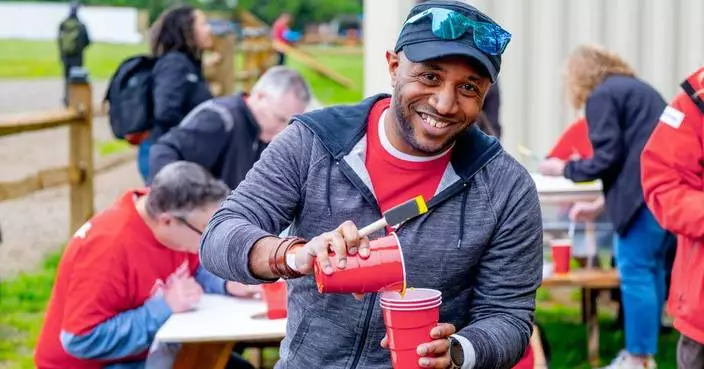BEIJING (AP) — Russian Foreign Minister Sergey Lavrov arrived in Beijing Monday to display the strength of ties with close diplomatic partner China amid Moscow’s grinding war against Ukraine and an ongoing effort to align their foreign policies against the U.S. and its allies.
The two continent-sized authoritarian states, increasingly in dispute with democracies and NATO, seek to gain influence in Africa, the Middle East and South America. China has backed Russia’s claim that President Vladimir Putin launched his assault in 2022 because of Western provocations, without producing any solid evidence.
Russian state news agency Tass said the ministers would “discuss the situation in Ukraine and the Asia-Pacific region, issues of bilateral cooperation and interaction in the international arena,” quoting Russian Foreign Ministry spokesperson Maria Zakharova.
Zakharova posted a photo on social media site Telegram showing Lavrov meeting with counterpart Wang Yi but gave no information of the content of their discussions. China's Foreign Ministry and state media had no immediate reports about the talks.
Lavrov arrived in China on Monday on an official visit that will last until Tuesday. Wang has visited Russia during the conflict in Ukraine and maintained China's line of not dubbing the Russian war in Ukraine an invasion.
China has at times taken an equally combative tone against the U.S. and its allies. China and Russia have held joint military drills, and are seen as seeking to supplant democracies with dictatorships in areas where they wield influence.
Despite its clear backing of Russia in the Ukraine war, China's Foreign Ministry spokeswoman Mao Ning told reporters Monday that “China has an objective and fair position on the Ukraine issue.”
“We have been actively promoting peace talks and political solutions. China is not a creator or party to the Ukraine crisis, and we have not and will not do anything to profit from it,” Mao told reporters at a daily briefing.
China has also said it wasn't providing Russia with arms or military assistance, although it has maintained robust economic connections with Moscow, alongside India and other countries.
Just weeks before Russia invaded Ukraine, Putin visited Beijing for the opening of the 2022 Winter Olympics and the sides signed a pact pledging a “no limits” relationship that has China supporting Russia's line, even while formally urging peace talks.
“We have always controlled the export of dual-use items in accordance with the law,” Mao said, referring to industrial items that can be used for both industrial or military purposes, such as drones.
“The relevant country should not smear or attack the normal relations between China and Russia,” Mao said. “The relevant country” was a reference to the U.S., Russia and China’s chief geopolitical rival.
In a phone call last week with Chinese leader Xi Jinping, U.S. President Joseph Biden pressed China over its defense relationship with Russia, which is seeking to rebuild its industrial base as it continues its invasion of Ukraine. And he called on Beijing to wield its influence over North Korea to rein in the isolated and erratic nuclear power.
Adding to the tension between the two countries, U.S. lawmakers generated new legislation that would ban TikTok, the popular social media application, if its China-based owner ByteDance doesn’t sell its stakes in the platform within six months of the bill’s enactment.
Lawmakers are concerned Chinese authorities could force ByteDance to hand over data on the 170 million Americans who use TikTok.
All Chinese firms, especially those in the social media sphere, are obligated to hand over user data to the government.
Lavrov's visit also coincides with the U.S. Treasury Secretary Janet Yellen, who on Monday wrapped up four days of talks with Chinese officials and said in Beijing they had “difficult conversations” about national security, including American concerns that Chinese companies are supporting Russia in its war in Ukraine.
Yellen also said the Biden administration will push China to change an industrial policy that poses a threat to U.S. jobs.
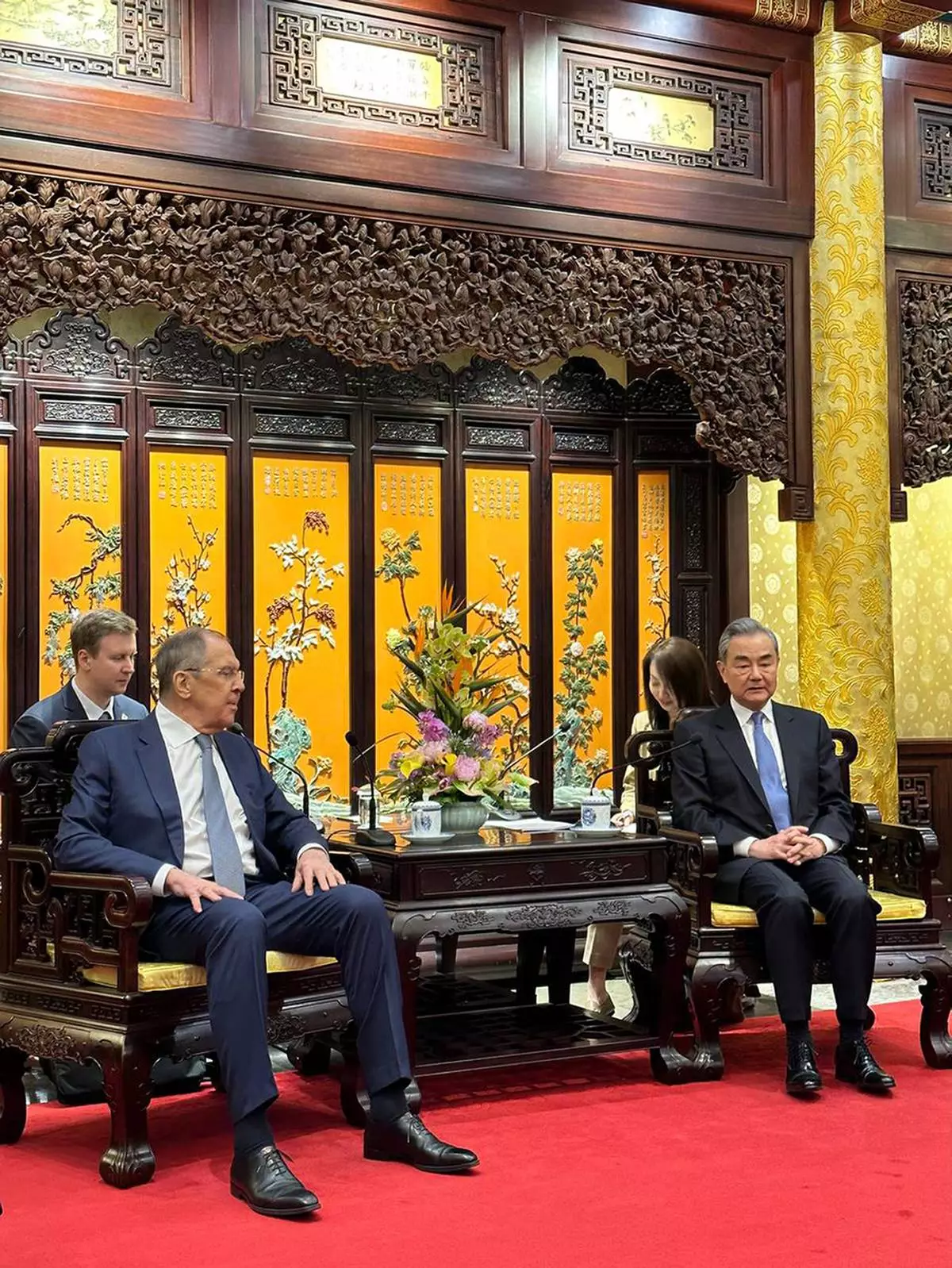
In this photo released by Russian Foreign Ministry Press Service on Monday, April 8, 2024, Russian Foreign Minister Sergey Lavrov, left, and Chinese Foreign Minister Wang Yi during their meeting in Beijing, China. Russian Foreign Minister Sergey Lavrov is visiting Beijing to display the strength of ties with close diplomatic ally China amid Moscow's grinding war against Ukraine. (Russian Foreign Ministry Press Service via AP)
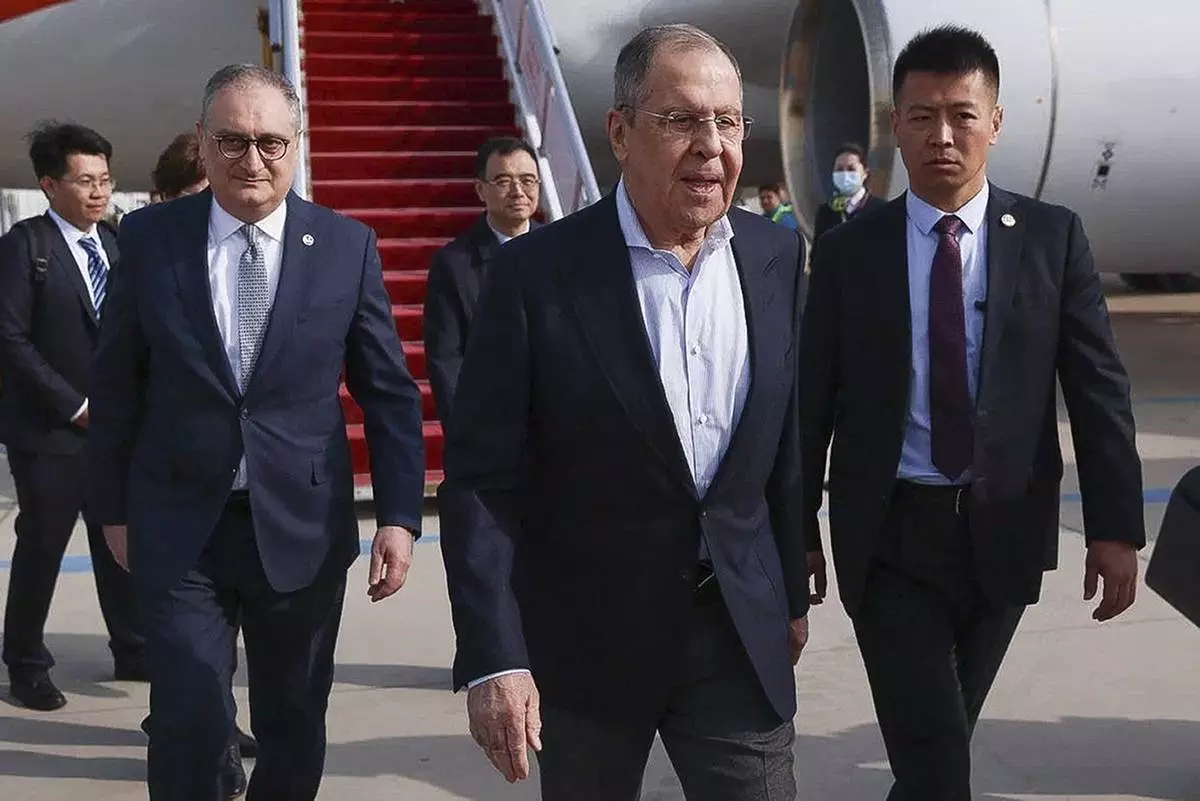
In this photo released by Russian Foreign Ministry Press Service on Monday, April 8, 2024, Russian Foreign Minister Sergey Lavrov, center, walks from the plane upon his arrival in Beijing, China. Russian Foreign Minister Sergey Lavrov is visiting Beijing to display the strength of ties with close diplomatic ally China amid Moscow's grinding war against Ukraine. (Russian Foreign Ministry Press Service via AP)
BEIRUT (AP) — The European Union announced Thursday an aid package for Lebanon of 1 billion euros — about $1.06 billion — that will mostly go to boost border control to halt the flow of asylum seekers and migrants from the small, crisis-wracked country across the Mediterranean Sea to Cyprus and Italy.
The deal follows other EU aid packages for countries such as Egypt, Tunisia and Mauritania to fortify their borders. It comes against a backdrop of increasing hostility toward Syrian refugees in Lebanon and a major surge in irregular migration of Syrian refugees from Lebanon to Cyprus.
European Union Commission President Ursula von der Leyen said during a Beirut visit with Cypriot President Nikos Christodoulides that the aid distribution will start this year and last till 2027.
The bulk of the aid — 736 million euros — would go to support Syrian refugees “and other vulnerable groups” in Lebanon, while 200 million euros are meant to bolster Lebanese security services in enforcing border and migration control, according to figures provided by the Cypriot government.
An unspecified amount would go to Lebanese fishermen, to discourage them from selling their boats to smugglers.
Von der Leyen said the EU will also work on a “more structured approach to voluntary return" of Syrian refugees "in close cooperation with” the U.N. refugee agency. The bloc will continue to maintain “legal pathways” for resettlement of refugees in Europe, she said.
Lebanon's Caretaker Prime Minister Najib Mikati praised the package, saying that “Lebanon’s security is security for European countries and vice versa,” and that an escalation of the crisis ”will not be limited to Lebanon but will extend to Europe."
Lebanon, which has been in the throes of a severe financial crisis since 2019, hosts nearly 780,000 registered Syrian refugees and hundreds of thousands more who are unregistered, the world's highest refugee population per capita.
Lebanese political officials have for years urged the international community to resettle the refugees in other countries or assist their return to Syria — voluntarily or not. Lebanese security forces have stepped up deportations of Syrians over the past year.
Tensions further flared after an official with the Christian nationalist Lebanese Forces party, Pascal Suleiman, was killed last month in what military officials said was a botched carjacking by a Syrian gang. The incident prompted outbreaks of anti-Syrian violence by vigilante groups.
Meanwhile, Cypriot authorities complain the island nation has been overwhelmed by irregular migration of Syrian asylum seekers, many of them coming on boats from Lebanon.
The UNHCR in Lebanon said it had verified 59 “actual or attempted” departures by boats carrying a total of 3,191 passengers from Lebanon between January and mid-April, compared to three documented boat movements carrying 54 passengers in the same period last year. Usually, few boats attempt the much more dangerous crossing in the winter. In all of 2023, UNHCR recorded 65 boat departures carrying 3,927 passengers.
Cyprus has taken a new approach to halting the flow of migrants. Last month, it suspended processing of Syrian asylum applications, and human rights groups accused the Cypriot coast guard of forcibly turning back five boats carrying about 500 asylum seekers coming from Lebanon. Cypriot officials have denied this.
Bassel al-Shayoukh, a Syrian refugee from Idlib living in Lebanon since 2014, said his brother and several cousins and nephews were on one of the boats turned back. Now he wants to make the journey himself.
“In the beginning I thought that in a year or two the war would be over in Syria,” he said, but it dragged on, while in Lebanon “every year ... the situation began to get worse.”
Shayoukh said he fears being beaten by vigilantes or deported to Syria after Lebanese authorities declined to renew his residency permit.
His 17-year-old nephew, who declined to give his name fearing for his safety, said the Cypriot coast guard started making waves to push the boat he was on away. “I was terrified... I don’t know how to swim,” he said. “I thought we were going to die.”
The people on the boats “stayed three days without food or water” before turning back to Lebanon, the teen added.
Back in Lebanon, they were detained by the army; those registered with UNHCR were released and the others deported.
Mohammed Sablouh, a Lebanese human rights lawyer who works on refugee and migrant cases, says Lebanese authorities are deliberately “turning a blind eye" to the surge in migration to "pressure the international community.”
The Lebanese army did not respond to a request for comment on their measures to combat smuggling.
Thursday's aid announcement comes ahead of the annual fundraising conference for Syria in Brussels later this month. After 13 years of civil war, donor fatigue has set in while the world’s attention is occupied by the humanitarian fallout of more recent conflicts in Ukraine and Gaza.
The Cypriot president said Thursday was a “historic day” and called for European officials to go farther and declare some areas of Syria safe for return.
“The current situation is not sustainable for Lebanon. It is not sustainable for Cyprus, it is not sustainable for the European Union,” Christodoulides said.
But not all Lebanese officials are convinced the European aid would solve the problem.
Lebanese Forces party head Samir Geagea told The Associated Press earlier this week that European authorities are mainly concerned “that the refugees don’t go to Europe."
"For us the problem is that we cannot have our country drowning in illegal Syrian refugees,” Geagea said, urging for Syrians to be sent back to either government or opposition-held areas of the neighboring country.
But Shayoukh says he has nowhere to go.
The Damascus government wants him for opposing Syrian President Bashar Assad, he said, while the Islamist group that now controls his hometown behaves "the same way as the regime’s intelligence services” in crushing dissidents.
Associated Press writer Menelaos Hadjicostis in Nicosia, Cyprus, contributed to this report.
Follow AP’s global migration coverage at: https://apnews.com/hub/migration

Lebanese caretaker Prime Minister Najib Mikati, center, speaks during his meeting with Cyprus' President Nikos Christodoulides, left, and President of the European Commission Ursula von der Leyen at the government palace in Beirut, Lebanon, Thursday, May 2, 2024. (AP Photo/Hassan Ammar)
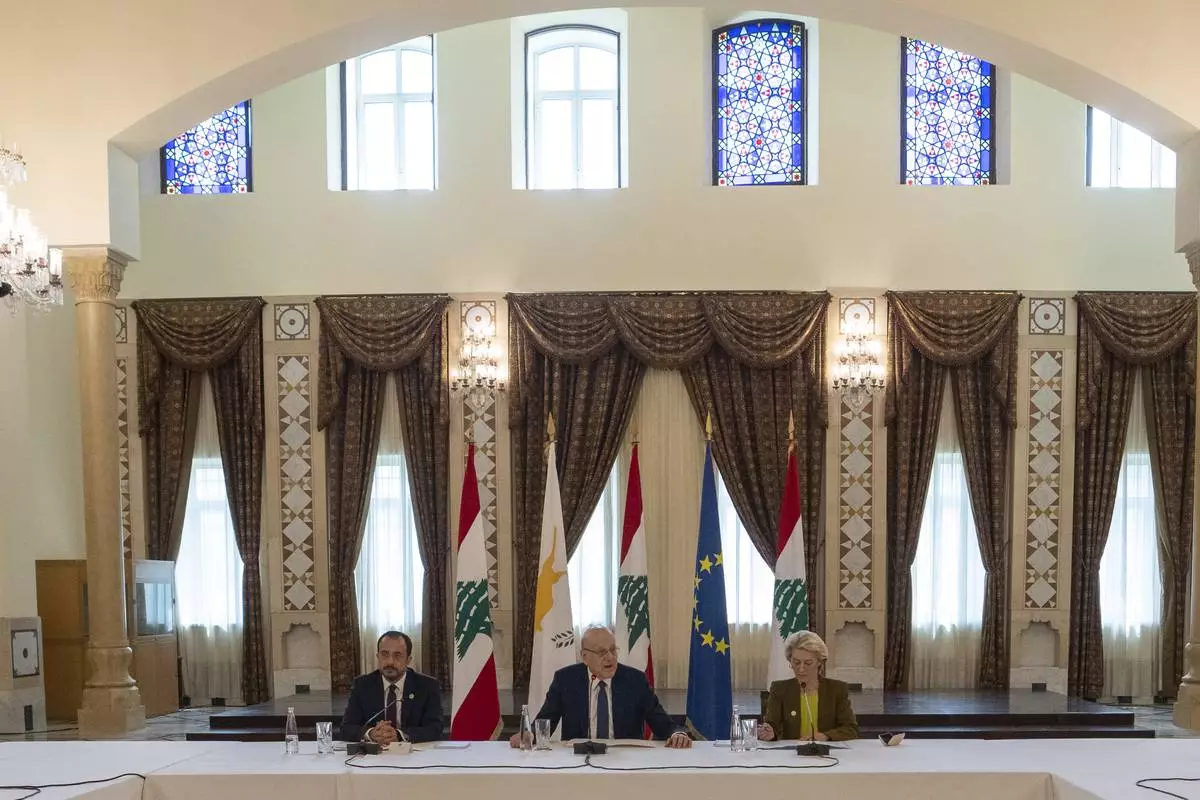
Lebanese caretaker Prime Minister Najib Mikati, center, speaks during his meeting with Cyprus' President Nikos Christodoulides, left, and President of the European Commission Ursula von der Leyen at the government palace in Beirut, Lebanon, Thursday, May 2, 2024. (AP Photo/Hassan Ammar)
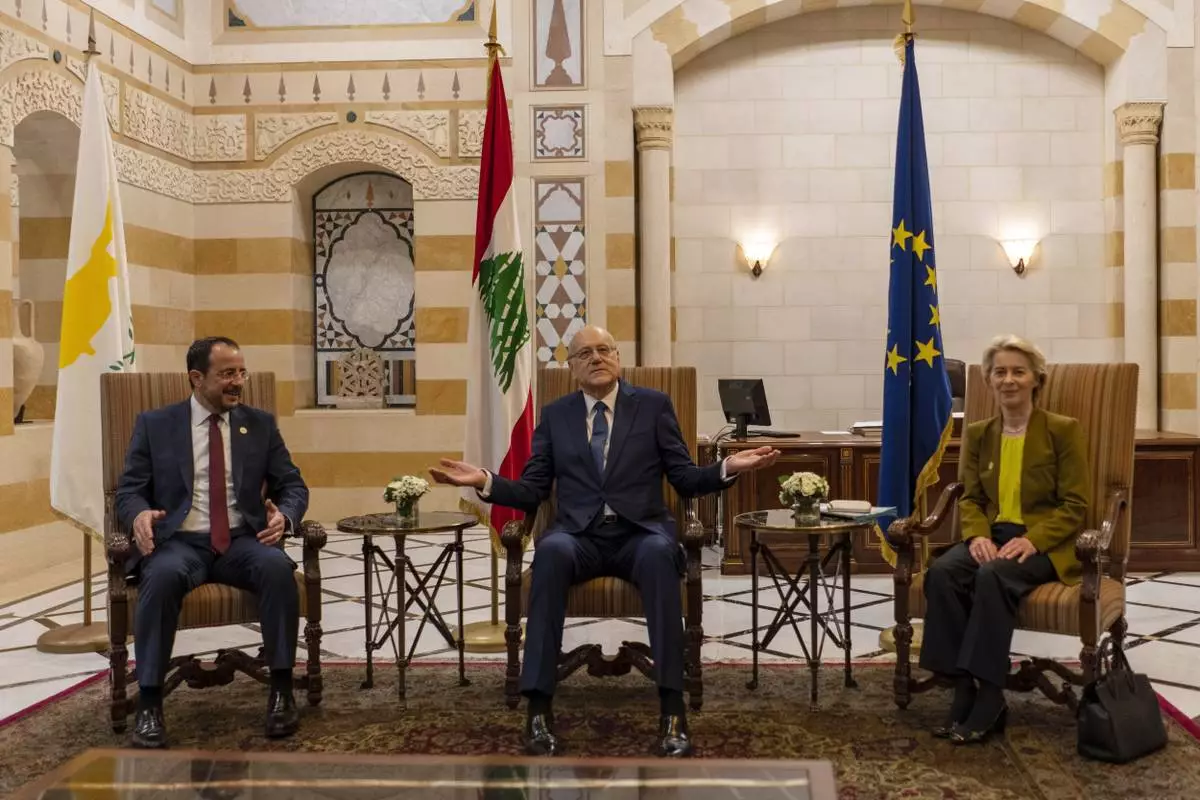
Lebanese caretaker Prime Minister Najib Mikati, center, welcomes Cyprus' president Nikos Christodoulides, left, and President of the European Commission Ursula von der Leyen before their meeting at the government palace in Beirut, Lebanon, Thursday, May 2, 2024. (AP Photo/Hassan Ammar)
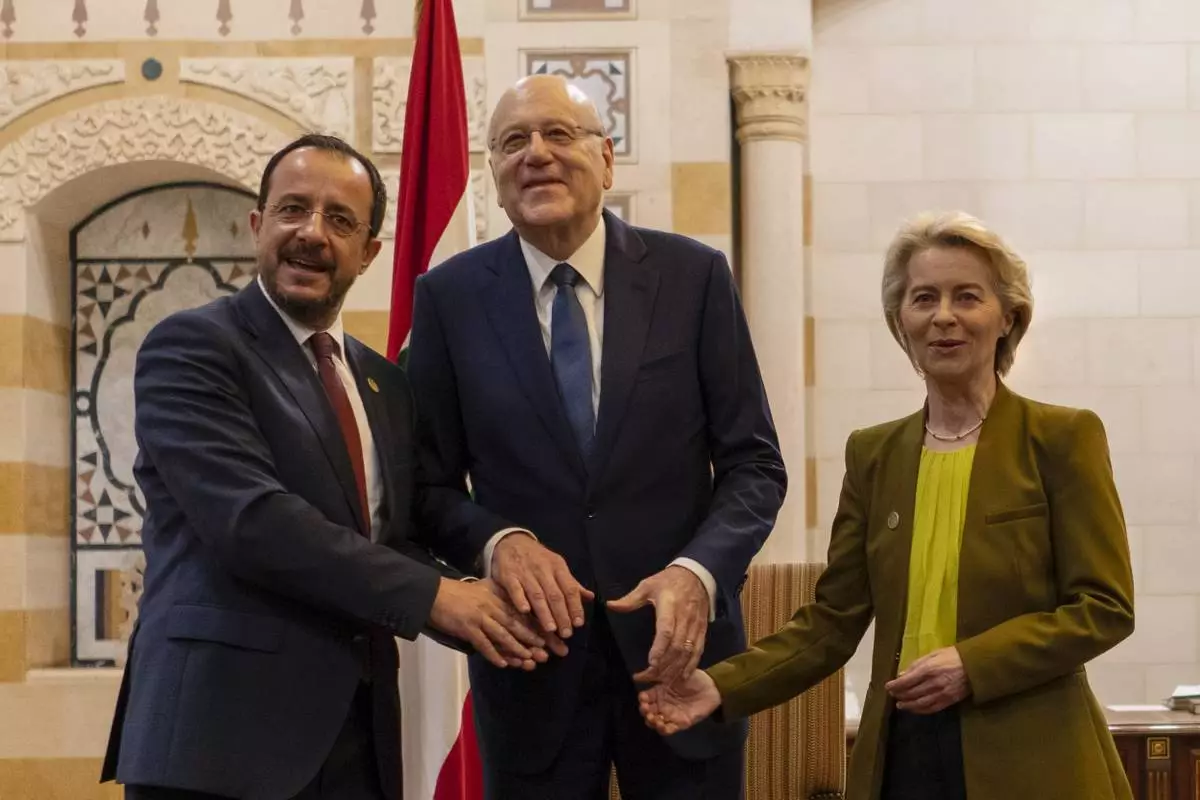
Lebanese caretaker Prime Minister Najib Mikati, center, Cyprus' President Nikos Christodoulides, left, and President of the European Commission Ursula von der Leyen pose for photograph at the government palace in Beirut, Lebanon, Thursday, May 2, 2024. (AP Photo/Hassan Ammar)
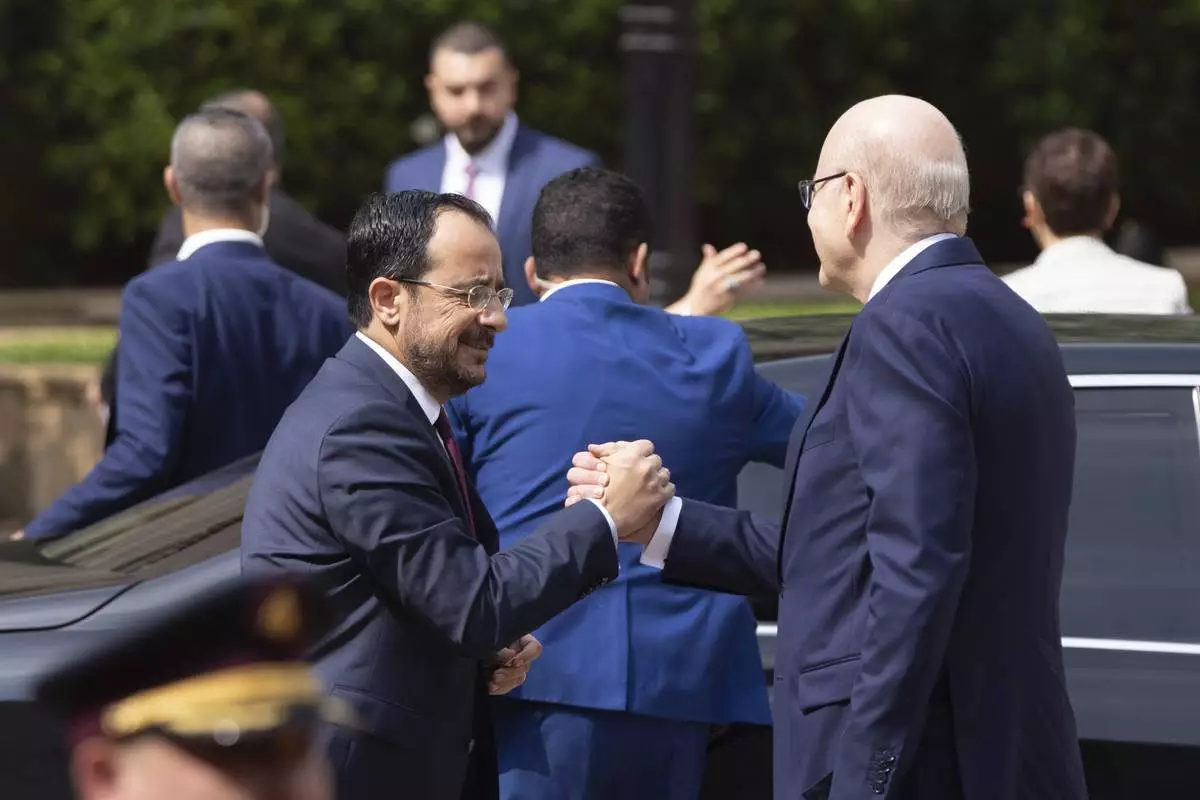
Lebanese caretaker Prime Minister Najib Mikati, right, welcomes Cyprus' president Nikos Christodoulides before their meeting at the government palace in Beirut, Lebanon, Thursday, May 2, 2024. (AP Photo/Hassan Ammar)

Cyprus' President Nikos Christodoulides, left, and President of the European Commission Ursula von der Leyen, center, review an honor guard upon their arrival to meet with the Lebanese Speaker Nabih Berri, in Beirut, Thursday, May 2, 2024. (AP Photo/Hussein Malla)

Lebanese caretaker Prime Minister Najib Mikati, center, speaks during his meeting with Cyprus' President Nikos Christodoulides, left, and President of the European Commission Ursula von der Leyen at the government palace in Beirut, Lebanon, Thursday, May 2, 2024. (AP Photo/Hassan Ammar)
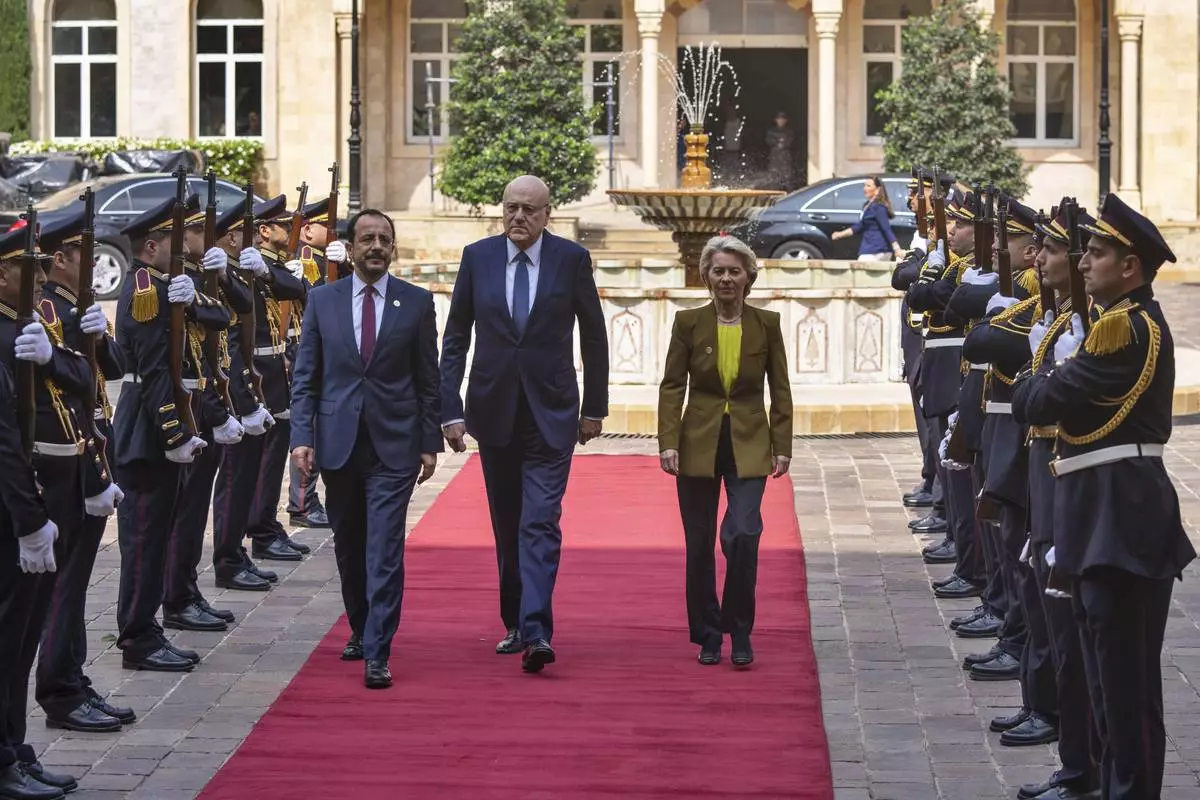
Lebanese caretaker Prime Minister Najib Mikati, center, welcomes Cyprus' President Nikos Christodoulides, left, and President of the European Commission Ursula von der Leyen at the government palace in Beirut, Lebanon, Thursday, May 2, 2024. (AP Photo/Hassan Ammar)




